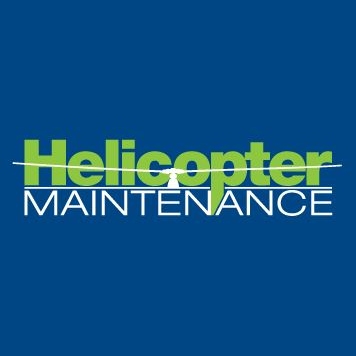
Field Service Engineering In the Valley of the Sun

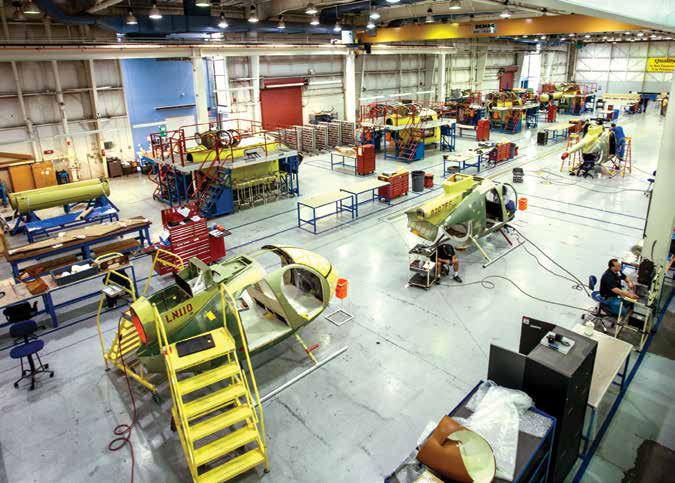
As operators and maintainers of helicopters, we often hear the words Customer Support Engineering or Field Service Engineering when asking questions about aircraft operations, parts availability and service. While both these terms are familiar to us, what exactly they mean may vary based on which OEM you ask. MD Helicopters, Inc. (MDHI) is located in the Valley of the Sun, where Helicopter Maintenance magazine (HMM) has its West Coast office. I am fortunate to work there as the main office is in Milton, WI. I am not a cheese head, nor do I enjoy shoveling 12 inches of partly cloudy out of the driveway nine months of the year, so I chose to work in the Valley of the Sun. It is really, really hot here, but you don’t have to shovel heat. Sorry, I digressed for a moment.
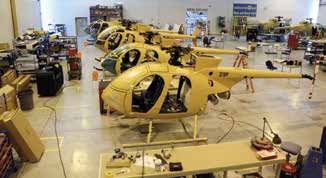
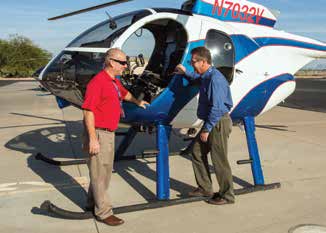
The Valley of the Sun is comprised of Phoenix, Arizona and the surrounding communities. Our office is in Glendale, AZ, about four miles north of where the Arizona Cardinals play football. On the other side of the valley is Mesa, AZ, and Falcon Field; that is the home of MD Helicopters, Inc.’s corporate headquarters. Their production and completion centers, painting facility, and flight and maintenance training operations are also located there. What better place to hold an interview and get their version of just what Field Service Engineering is all about? I contacted Chris Wolfe, Manager Field Service Engineering and Maintenance Training, and he was very willing to be interviewed for this article.
Before we continue, here is some background information about MDHI to bring everyone up to speed as to just who they are and what they make.
History
MD Helicopters, Inc. traces its roots back more than 50 years to when the Hughes Tool Company Aircraft Division first started to develop “light helicopters” in 1955. After years of successfully manufacturing such models as the Hughes 300, 500 and 530F for civil use, and TH-55 Osage, OH-6 Cayuse and highly successful AH 64-Apache helicopters for military applications, Hughes sold its business to McDonnell Douglas in 1984. For the most part, McDonnell Douglas stayed true to the original Hughes designs and nomenclatures.
In 1997, McDonnell Douglas merged with Boeing to become the Boeing Company. In 1999, Boeing sold the former MD commercial helicopter lines to the Dutch company RDM Holdings, and the name was changed to MD Helicopter Holdings Inc. Included in the sale were the MD 500E and MD 530F single-engine helicopters with conventional tail rotors, the MD 520N and MD 600N single-engine helicopters with the Boeing exclusive NOTAR® no tail rotor system for anti-torque and directional control, and the MD Explorer series of twin-engine, eight-place helicopters.
Boeing maintained the AH-64 line of helicopters and the intellectual property (IP) rights to other variants.
MD Helicopters Holdings, Inc. was acquired in July, 2005 by Lynn Tilton, founder and CEO of Patriarch Partners, LLC, an investment fund. The company was recapitalized as an independent company, MD Helicopters, Inc.
The current commercial product line includes the MD 500E, MD 530F, MD 520N, MD 600N and the MD 900/902 also known as the Explorer, as well as the weaponized MD 530F, MD 530G and MD 540A.
Today
Under the direction of owner and CEO Lynn Tilton, MD Helicopters, Inc. has enjoyed a successful turnaround going from as few as 7 helicopters manufactured in 2005 to 52 in 2008. In 2009-2010, the outlook for all helicopter manufacturers softened with the worldwide economy, but the company was confident of its sustained continued growth.
With more than 2500 aircraft currently in use around the world, MDHI is a substantial company by any measure. MD Helicopters operators do everything from air ambulance and rescue, to utility operations, power line inspection, agriculture and mosquito spraying, and police missions. Fleet users include the Korean Armed Forces, US Special Operations, Japanese Self Defense Forces, Jordanian Armed Forces, Turkish National Police, Houston Police, Columbus Police, Police Aviation Services, Aero Asahi in Japan, the Italian government, the Finnish Armed Forces and many, many others.
Inside MDHI, the company is focused on internal process improvements, supply chain product flow and fuselage ramp-up that will optimize the customer experience. There has also been a significant emphasis on the sales of spare parts, and the repair and overhaul business.
Through all the changes over the years, MD Helicopters Inc. has enjoyed what some might describe as an almost cult-like admiration from its customers and employees. It is viewed as a small private company with lots of heart and soul and a proven history of delivering extremely good products. MD Helicopters are known for their speed, strength and ability to fly “hot and high.” They are a true “pilot’s helicopter.”
Now that we understand who and what MD Helicopters is, and that their customer base is truly worldwide, it is easy to understand why a vibrant, flexible and knowledgeable Field Service Engineering group plays such an important part of MDHI’s customer support. Now, let’s get on with our conversation with Chris Wolfe about MDHI’s approach to Field Service Engineering (FSE).
HMM– Hello Chris. To start us off, where is MDHI’s FSE headquartered, and what other global locations do you have?
Chris- MDHI Field Service Engineering’s base of operation is located at our main facility at Falcon Field, in Mesa, Arizona. We also have FSEs based in the United Kingdom and the Eastern US.
HMM- I suspect that you and your team of FSEs do quite a bit of traveling.
Chris - Oh yes. With a global customer base, sometimes I think travel is my middle name.
HMM- What are your typical working hours?
Chris - We are on call 24/7 to help our customers, but our normal hours are 7am to 5 pm Mountain Standard Time.
HMM- What would you say is your overall goal at MDHI for the Field Engineering Services team?
Chris– Providing comprehensive technical support is a critical benefit to our customers wherever they are located. These professionally trained qualified airframe, engine and avionics experts provide our customers with technical and logistical support, warranty assistance, systems integration, troubleshooting and on-the-job training for the operator’s helicopter maintenance professionals.
HMM- Is there a special number(s) to call for FSE assistance?
Chris- Yes, our FSEs can be reached by calling (800-388-3378). We also each have our own dedicated phone numbers, as well as an after-hours support number. Contact information can be found by clicking the Support tab at http://www.mdhelicopters.com.
HMM- How many FSEs do you currently have?
Chris- There are currently 9 of us. We are hiring more FSEs at this time, and hope to increase our staff to 12 over the next year.
HMM - How would you breakdown the FSEs areas of expertise?
Chris – Our FSE teams are first broken down by model type (twin engine or single engine), and then by individual specialties such as avionics, engines, flight controls, etc.
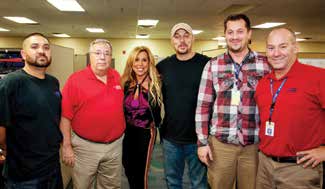
HMM- Are there any systems that the FSEs do not cover?
Chris – No. There are no systems that we do not cover. We cover all of them, from tip to tail. The MDHI FSE team can support our customer’s systems/needs from base systems to all installed options.
HMM - Are there any MD models that are not covered by FSEs?
Chris – No. MDHI FSE’s support all models, from the Hughes OH6A to the MD 900/Explorer.
HMM - What does a typical phone call or text message say that acts as a wakeup call for FSE?
Chris- There really isn’t a ‘typical’ call or message. Every customer’s experience is unique. For example, a customer’s helicopter is grounded and they need our help getting it back in service. The customer could be experiencing a variety of issues, so we work with them to figure out the problem and the fix.
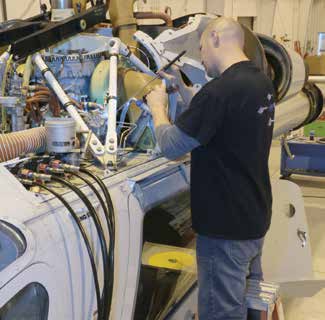
HMM - What are some of the typical questions asked of you by an operator?
Chris - There are so many different questions we are asked, and a phone call always has the potential to change everything. Sometimes really detailed questions have really simply solutions, and in some cases it’s the ‘easy’ questions that evolve into something more in depth. If I had to categorize them I’d say the most common questions we get concern part effectivity, troubleshooting electrical and avionics systems, track and balance issues, etc. We also provide repairs for anomalies that are beyond what is covered in the Instructions for Continued Airworthiness (ICA).
HMM– Please describe the typical actions that determine if an FSE will visit a customer in response to being called?
Chris- Generally we make the determination that a customer needs on-site support when we know they will not be able to fix their machine themselves. Then it is just a matter of who will be dispatched and when.
HMM- What are some of the problems that trigger an FSE response?
Chris- We help customers with any request. Some of the time we will just visit and help troubleshoot. Other times we may be reassembling a helicopter after shipment or performing a modification with one of our Wolfpack teams.
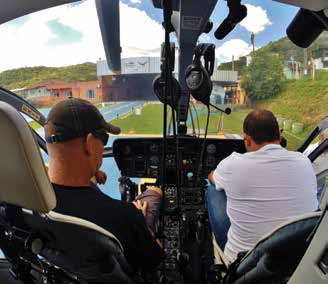
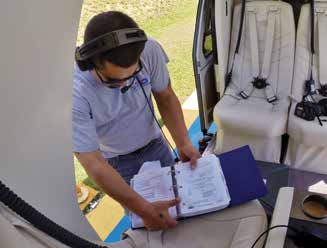
HMM– What are some of the typical problems that you solve in the field? Tell me about some of your recent customer visits.
Chris– Today I am sending an FSE out to help a customer who ran their tail rotor into another aircraft on the ramp. He will provide the customer with a full report of the damage, as well as an approved repair, parts list etc. We can also provide one of our Wolfpack teams to perform the repair at the customer’s request.
I currently have another FSE onsite in South America helping a customer with rotor vibration issues. Before the helicopter could be run, he had to fix an electrical problem. The annunciators would not test properly. That helicopter is now airworthy he can move on to the vibration issue.
Another customer accidentally overfilled their fuel cell with air during a fuel system pressure-leak check on an MD900. The overfilled fuel cell broke the fuselage of the helicopter. We dispatched an FSE along with one of MDHI’s engineers to evaluate the damage, and write the Designated Engineering Representative (DER) approved repair for the customer. This gave them the approval needed for the structural repair.
HMM- Can you share any dos and don’ts with our readers regarding what to do or not to do before contacting FSE?
Chris - Do read the ICA. Don’t ever hesitate to ask for help.
HMM- What do you recommend an operator do before they call you?
Chris - The customer should have a detailed description of the problem, and the troubleshooting they have done.
HMM- In today’s digital world, do you receive many emails with photos to show you the problem the operator is having?
Chris- We ask for and receive many pictures. In many instances, it would be more difficult to understand the problem without them. Like the saying goes, “One picture is worth a thousand words.”
HMM - What kind of presence do you have on the internet?
Chris- MDHI has a great website with information on our helicopter support, etc. We are currently in the process of updating the website. The URL is: www.mdhelicopters.com.
HMM- What is the hierarchy for the customer to reach you starting at their location?
Chris– If a customer needs us we can be reached on our 800 phone line or by email at any time; 24 hours a day/7 days a week. All of the contact info for the Field Service Engineers can be found on our website by clicking on the Support tab.
HMM - What suggestions would you offer an operator that would help them take better care of their aircraft?
Chris - Optimizing helicopter performance isn’t really any different than optimizing the performance of your car. Cleanliness and preventative maintenance are the keys to long term successful operation. Performing the required airworthiness inspections and fixing problems that are found as they happen is also very important. The more squawks that are left unfixed, the more safety and value are compromised.
In closing, we have learned quite a bit about MDHI and their version of Field Service Engineering. Whether you are flying MD helicopters in the Valley of the Sun, or anywhere else around the globe, their team of specialists is always available for you.
